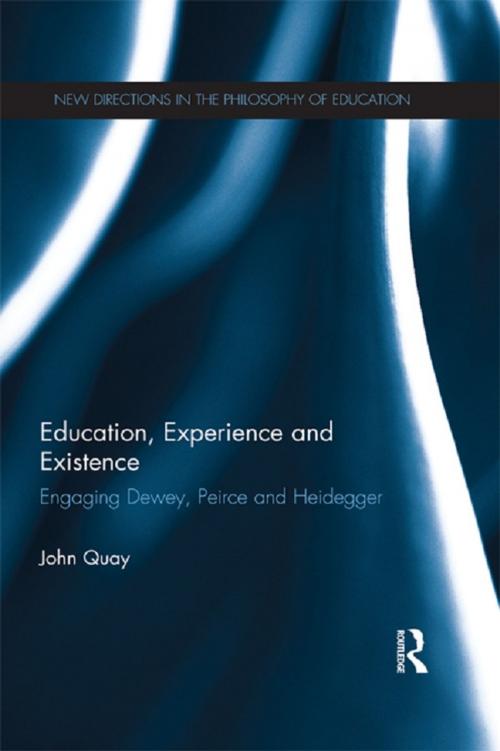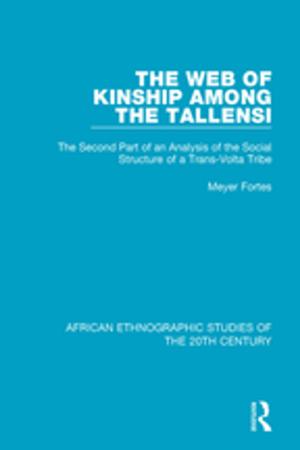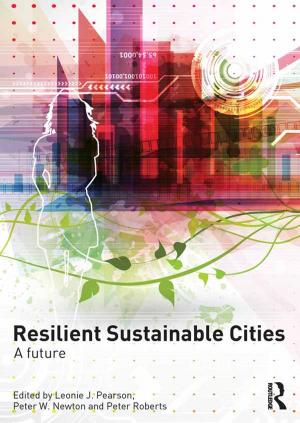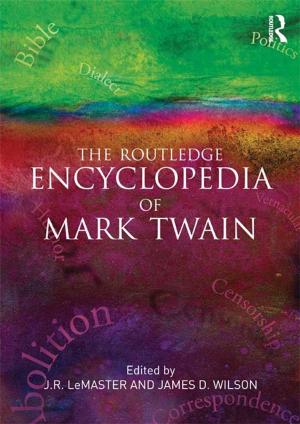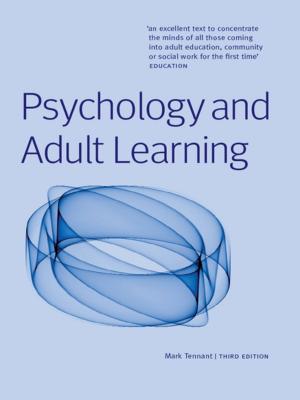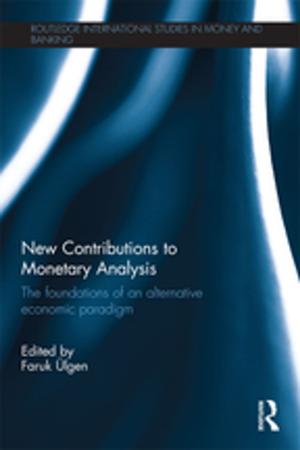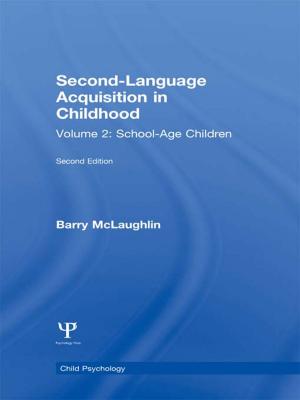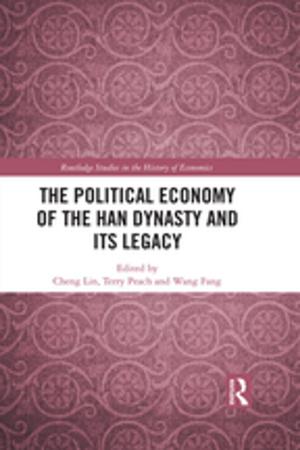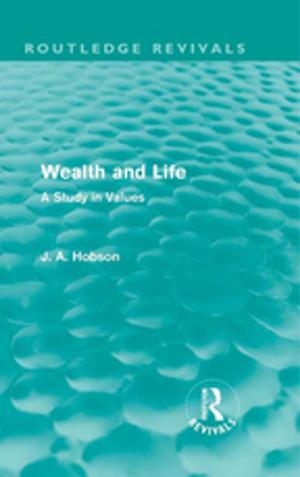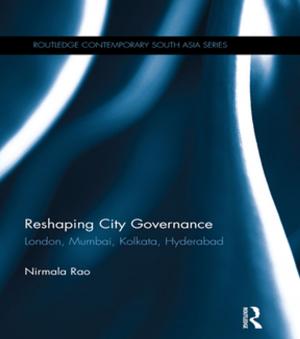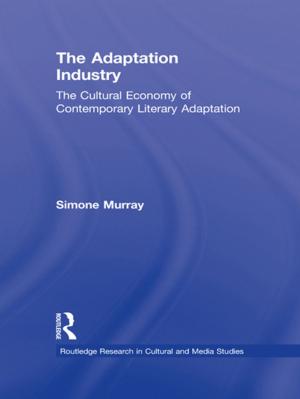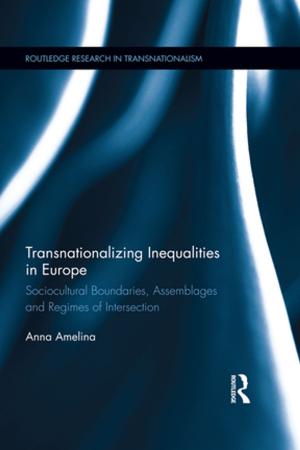Education, Experience and Existence
Engaging Dewey, Peirce and Heidegger
Nonfiction, Reference & Language, Education & Teaching, Educational Theory, Philosophy & Social Aspects, Religion & Spirituality, Philosophy| Author: | John Quay | ISBN: | 9781135969974 |
| Publisher: | Taylor and Francis | Publication: | July 18, 2013 |
| Imprint: | Routledge | Language: | English |
| Author: | John Quay |
| ISBN: | 9781135969974 |
| Publisher: | Taylor and Francis |
| Publication: | July 18, 2013 |
| Imprint: | Routledge |
| Language: | English |
Education, Experience and Existence proposes a new way of understanding education that delves beneath the conflict, confusion and compromise that characterize its long history. At the heart of this new understanding is what John Dewey strove to expound: a coherent theory of experience. Dewey’s reputation as a pragmatist is well known, but where experience is concerned pragmatism is only half the story. The other half is phenomenological, as crafted by Martin Heidegger. Encompassing both is Charles Sanders Peirce, whose philosophy draws pragmatism and phenomenology together in an embrace which enables a truly experiential philosophy to emerge.
The book approaches the problem of confusion in education and philosophy by beginning with our most basic understandings of existence. Existence as an interaction is the starting point of modern science, and existence as individuality offers an aesthetic origin, attending to existence as a simple unity. In our contemporary world where scientific ways of thinking are privileged, the aesthetic whole is often overlooked, especially in education. Yet both are connected. A coherent theory of experience is therefore a marriage between phenomenology and pragmatism, enabling each to maintain its position by acknowledging how both are required.
The book is divided into three main parts:
- confusion in philosophy and education
- a coherent theory of experience
- a coherent theory of education.
Quay suggests that education benefits from such a coherent theory of experience by better comprehending its connection to life. More than just knowing, more than just doing, education is about being. This book will be of interest to philosophers, educators and educational philosophers.
Education, Experience and Existence proposes a new way of understanding education that delves beneath the conflict, confusion and compromise that characterize its long history. At the heart of this new understanding is what John Dewey strove to expound: a coherent theory of experience. Dewey’s reputation as a pragmatist is well known, but where experience is concerned pragmatism is only half the story. The other half is phenomenological, as crafted by Martin Heidegger. Encompassing both is Charles Sanders Peirce, whose philosophy draws pragmatism and phenomenology together in an embrace which enables a truly experiential philosophy to emerge.
The book approaches the problem of confusion in education and philosophy by beginning with our most basic understandings of existence. Existence as an interaction is the starting point of modern science, and existence as individuality offers an aesthetic origin, attending to existence as a simple unity. In our contemporary world where scientific ways of thinking are privileged, the aesthetic whole is often overlooked, especially in education. Yet both are connected. A coherent theory of experience is therefore a marriage between phenomenology and pragmatism, enabling each to maintain its position by acknowledging how both are required.
The book is divided into three main parts:
- confusion in philosophy and education
- a coherent theory of experience
- a coherent theory of education.
Quay suggests that education benefits from such a coherent theory of experience by better comprehending its connection to life. More than just knowing, more than just doing, education is about being. This book will be of interest to philosophers, educators and educational philosophers.
